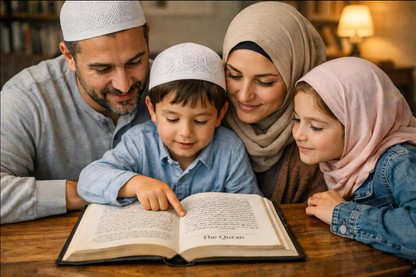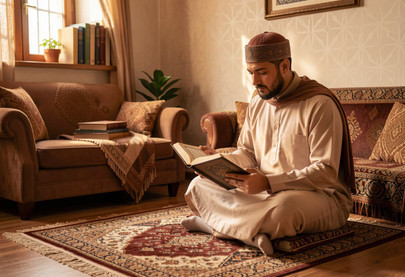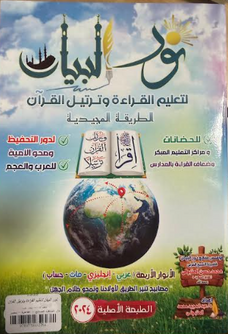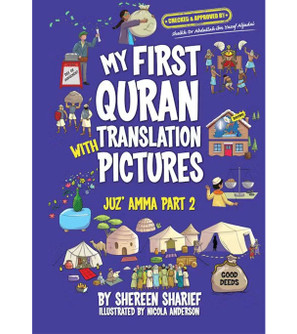A Day in the Life of a Muslim Teacher | Faith & Education
When the school bell rings for the first time, a Muslim teacher opens the school day with Bismillah, a reminder that every minute of teaching is an act of worship and is personal and purposeful. Across the world, they are not just teaching students, but developing the hearts of students in submission to faith.
An Islamic teacher has a responsibility beyond typing tests or changing a textbook. Every lesson can be an opportunity to bring an element of Allah's creation into science or art class, to teach mercy, or to live one's belief in the qualities of honesty, patience, and humility. Teaching in this manner is not a job title, it is a sacred trust and a permanent amanah (responsibility).
Here, we take you behind the scenes and meet a day in the life of a Muslim teacher, how they integrate Islamic values within their curriculum, classroom setting, and personal development. In these stories, we'll find out what it is to be Muslim and teach, where each day is a journey of learning, inspiration, and faith.
What Is a Muslim Teacher Called?
In Islamic tradition, the word teacher carries a religious significance. The Muslim teacher is simply called an Ustadh (for men) or Ustadha (for women), names that not only refer to knowledge, but to respect and virtue. The title Mu'allim in Arabic also refers to someone of great respect, one who teaches with sincerity and wisdom.
These names serve as a reminder that teaching is not just a job, it is a vocation. An Islamic teacher means someone that does some appreciable work helping individuals to find the pathway to not just worldly success, but most importantly from an Islamic tradition, a space that can lead to spiritual elevation, while following the model of the greatest teacher for all of humankind, the Prophet Muhammad ﷺ.
In Islam, we learn that we must respect teachers and the teachers are the flame of knowledge. And, the Prophet ﷺ said it best: "The best among you are those who learn the Qur'an and teach it." Discover beautifully printed copies of the Qur’an for your classroom at Madinah Media’s Holy Quran Collection.
This Hadith is a perfect illustration that teachers are not honored simply for repeating or converting ideas and concepts into highly digestible information, but are celebrated for their development and shaping changing the hearts and minds of future generations.
Regardless of whether they teach mathematics, literature, or Islamic studies, all Muslim teachers have this holy legacy with them, a connecting link between knowledge and religion, between reason and soul.
How Do Muslim Teachers Integrate Islam into Teaching?
A Muslim teacher doesn't just teach subjects, they teach life by faith. Every lesson is a chance to remind students that learning itself is an act of submission. From the moment they begin the day with Bismillah to ending it with Alhamdulillah, their classroom is the essence of the refinement of Islamic values.
An Islamic teacher integrates Islam into teaching in many authentic ways:
Faith in every study:
From studying the laws of physics to studying the wonders of nature, the students are urged to seek Allah's plan in everything that they learn. Science is a way of thanking God for creation, and art is a way of speaking thanks. Explore Islamic-themed educational books and children’s learning materials to bring faith into every subject.
Character Over Competition:
Muslim educators place emphasis on character development, humility, and respect. They share with their students that success is more than grades and consists of good character such as honesty, compassion, and sincerity.
Teaching as a Muslim:
For others, teaching in a multicultural mode means living out Islam by modeling everything that you want your students to learn through those encounters, patience, fairness, and compassion. They are daw'ah (a call to righteousness) simply by their presence.
Salaah and mindfulness:
Using short reflections, passages from the Qur’an, or du’a throughout the day encourages students to stay spiritually connected mindful of Allah. Teachers can enhance spiritual learning spaces with Islamic stationery and gifts that remind students of gratitude and remembrance.
Through these non-intrusive but powerful actions, a Muslim teacher makes the classroom more than just a learning space, it becomes a zone of iman (faith), growth, and meaning.
What Is a Day in the Life of a Muslim Educator?
1. A Faith-Filled Morning Routine
The day of the Muslim teacher begins early morning. Having prayed Fajr, they sit quietly in front of a cup of tea and their lesson plan, not just to plan lessons, but to intend. They silently make a simple du'a: "O Allah, make my knowledge beneficial." This spiritual start infuses their day with focus, peace, and intention. Start your day with inspiring reads from Madinah Media’s English Books that uplift faith and purpose.
2. Establishing a Faith-Based Classroom
When they step into the classroom, they transform the space. The walls may be decorated with Qur'anic verses, artwork inspired by Islamic culture, or gentle reminders to be kind and respectful. Each Assalamu Alaikum that flows between teacher and students reaffirms a sense of home and brotherhood. Add warmth and creativity to your classroom with Islamic toys, games, and educational decor.
Here, the Islamic teacher sets the tone, blending discipline with compassion, and learning with affection.
3. Adding Islam to Every Lesson
Through the day, meaning is embedded in lessons. Science time is a time to think about Allah's precise creation. Literature class time is a time of storytelling and moral and empathy discussion. Math also exhibits balance and order, a picture of Godly harmony.
All subjects to the Muslim teacher are gates to learning Allah's wisdom.
4. Teaching as Muslim: Beyond the Lesson Plan
As a Muslim educator, it involves being an example. In Islamic schools or otherwise, they live Islam in their integrity, patience, justice, humility, and compassion. This silent form of da'wah (invitation to good) teaches more than any lesson scripted.
In between classes, they might offer words of encouragement, cite a Hadith on perseverance, or remind children of prayer times, making the day-to-day a moment of faith.
5. Gratitude and Reflection at Day's End
Once the last bell has rung, the labor does not end. Papers are graded, lessons for the future planned out, and still the heart thinks of a greater reward. As Maghrib comes near, the Muslim teacher closes their notebook and gives thanks, satisfied knowing they have spent the day imparting knowledge, tending the faith, and meeting their amanah (trust).
Being a Muslim teacher is not just teaching as a Muslim, it's living Islam in every word, decision, and flash of inspiration.
The Special Role of Muslim Teachers in Contemporary Education
In today's multicultured and accelerated education system, a Muslim teacher's function is far more expansive than that of a trainer. They are cultural bridges, moral educators, and representatives of Islamic values in settings that often necessitate reminders of empathy, respect, and significance.
1. Bridging the Gap between Religion and Modern Learning
A Muslim teacher successfully unifies modern methods of teaching with timeless Islamic values. They embrace technology, innovation, and creativity but ground their teaching in ethics, gratitude, and modesty. By doing so, they prove that religion and progress are not opposites but two harmonious forces creating well-rounded individuals. For educational inspiration rooted in faith, explore Islamic books for teachers and learners at Madinah Media.
2. Developing Character and Critical Thinking
While scholarly accomplishment matters, Islamic educators know that education reaches the heart. They help form character (akhlaq) alongside intellect, and encourage children to question, reflect, and stay true to themselves. Their schools become sanctuaries in which learning is enabled by sympathy rather than comparison.
3. Modeling Islam
For others, being a Muslim teacher means being a visible living reminder of faith in the multicultural world. Through professionalism, kindness, and patience, they battle stereotypes and bridge cultures of understanding. Every step, from fairness in grading to compassion in discipline, becomes a silent witness to Islamic ethics' beauty.
4. Mentoring the Next Generation
Apart from teaching and exams, a Muslim teacher is a mentor who shapes the next generation of Muslim youth into confident, ethical, and God-conscious citizens. They instill students with acquiring the mindset that one's faith should not be a constraint but an avenue to make them bold and motivated individuals in a globalized world where they operate internationally. Support young learners’ growth through faith-based kids’ books and educational materials.
Why We Should Respect Teachers in Islam?
For in Islam, knowledge is not only holy, but the bearers of it are elevated to a noble rank. To hold teachers in high regard is to recognize that the teachers play a pivotal role in constructing not just minds, but character. A Muslim teacher lives this respect every day, serving as a bridge that unites knowledge, character, and faith.
1. Teachers Have a Noble Status in Islam
The Prophet Muhammad ﷺ stated, "The best among you are those who learn the Qur'an and teach it." This Hadith is a reminder that teaching is not simply a profession, it is a form of worship (ibadah). Every lesson taught, every student guided, is a source of ongoing reward (sadaqah jariyah). Honor this sacred duty with beautifully designed copies of the Holy Qur’an available at Madinah Media.
A true Islamic teacher does not just stuff heads with knowledge; they illuminate hearts with understanding. They allow students to view life through the lens of faith and gratitude, connecting each subject to Allah's holy wisdom.
2. Understanding the Effort that Goes into Teaching While Muslim
As a Muslim educator in the modern era, it most often means double responsibilities — staying up to academic marks while keeping in spiritual integrity. Whether they work in Islamic schools or public schools, these teachers struggle through obstacles with dignity and patience, teaching more by example than by lesson.
Their integrity and character should be valued by parents, schools, and society in general. It is to invest in them, respect their profession, and wish for their academic excellence in Islam to value teachers.
3. Teaching as an Eternity Legacy
The Prophet ﷺ instructed that when a person dies, their actions cease except for three: continuing charity, knowledge that provides benefit, and a righteous child who prays on their behalf. Every Muslim teacher is a member of all three, imparting knowledge that continues to give long after their last bell in class.
By honoring teachers, we are honoring one of the greatest acts of service in Islam, molding minds while uplifting hearts.
Final Thoughts: A Tribute to the Heart of Every Muslim Teacher
Every confident student was able to develop their confidence because of a Muslim teacher who believed in them, cared for them with heart, and continually reminded them that learning is an act of worship. These teachers do more than educate, they instill character, strengthen Islam, and nurture generations to pursue knowledge in sincerity.
Whether in a school that is Muslim or a public classroom, being Muslim while teaching means introducing the light of Islam into every act and every utterance. It is living out one's faith genuinely while enabling others to discover beauty in learning.
We, as a nation, ought to continue applauding teachers for their efforts and supporting the noble task they do every day, which is following the path of our Prophet Muhammad ﷺ, who was the greatest teacher in history.
To read more inspiring stories, educational content, and resources for faith-based instruction, visit Madinah Media, where Islamic education, creativity, and purposeful service meet.
















